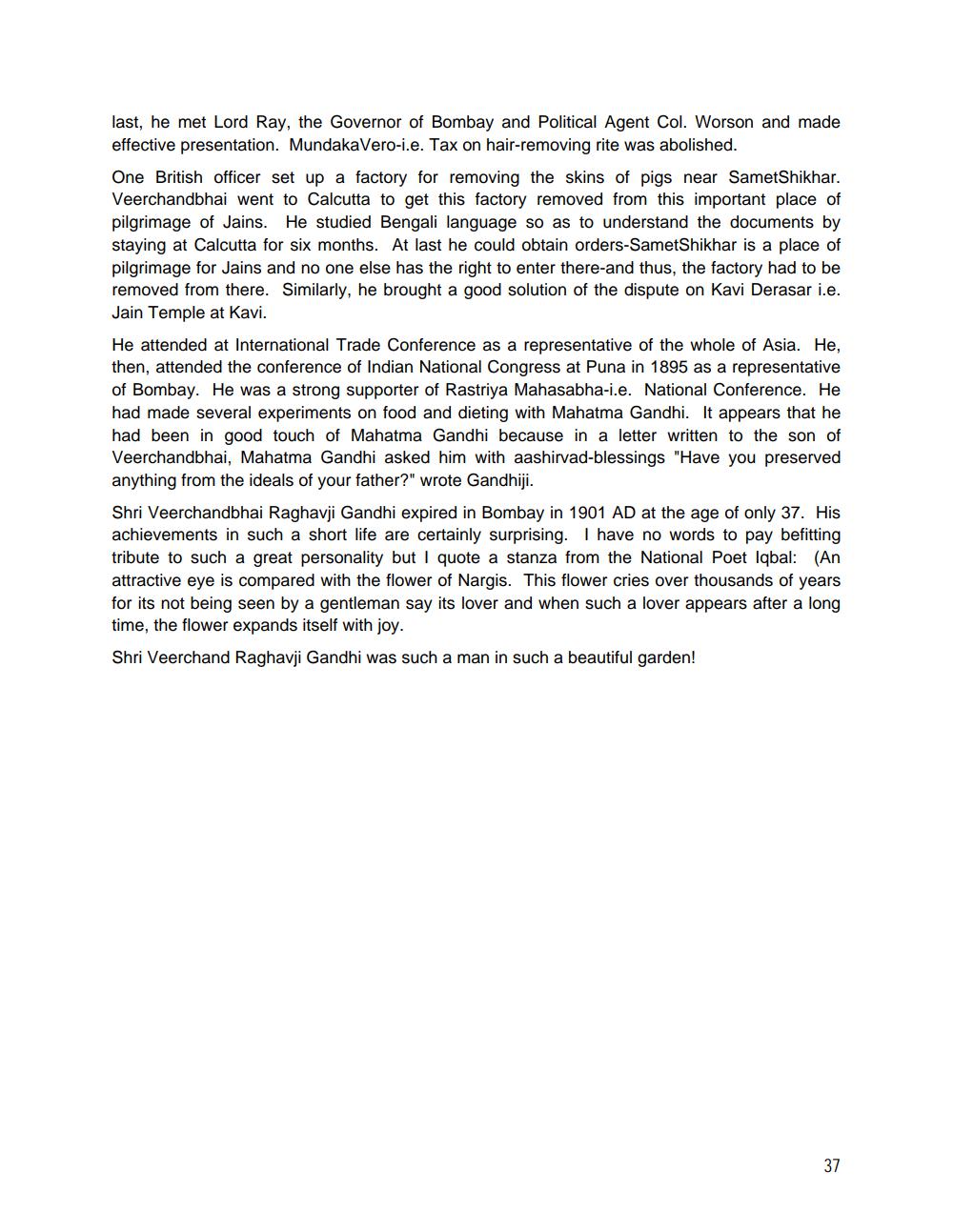________________
last, he met Lord Ray, the Governor of Bombay and Political Agent Col. Worson and made effective presentation. MundakaVero-i.e. Tax on hair-removing rite was abolished.
One British officer set up a factory for removing the skins of pigs near SametShikhar. Veerchandbhai went to Calcutta to get this factory removed from this important place of pilgrimage of Jains. He studied Bengali language so as to understand the documents by staying at Calcutta for six months. At last he could obtain orders-SametShikhar is a place of pilgrimage for Jains and no one else has the right to enter there-and thus, the factory had to be removed from there. Similarly, he brought a good solution of the dispute on Kavi Derasar i.e. Jain Temple at Kavi.
He attended at International Trade Conference as a representative of the whole of Asia. He, then, attended the conference of Indian National Congress at Puna in 1895 as a representative of Bombay. He was a strong supporter of Rastriya Mahasabha-i.e. National Conference. He had made several experiments on food and dieting with Mahatma Gandhi. It appears that he had been in good touch of Mahatma Gandhi because in a letter written to the son of Veerchandbhai, Mahatma Gandhi asked him with aashirvad-blessings "Have you preserved anything from the ideals of your father?" wrote Gandhiji.
Shri Veerchandbhai Raghavji Gandhi expired in Bombay in 1901 AD at the age of only 37. His achievements in such a short life are certainly surprising. I have no words to pay befitting tribute to such a great personality but I quote a stanza from the National Poet Iqbal: (An attractive eye is compared with the flower of Nargis. This flower cries over thousands of years for its not being seen by a gentleman say its lover and when such a lover appears after a long time, the flower expands itself with joy.
Shri Veerchand Raghavji Gandhi was such a man in such a beautiful garden!
37




